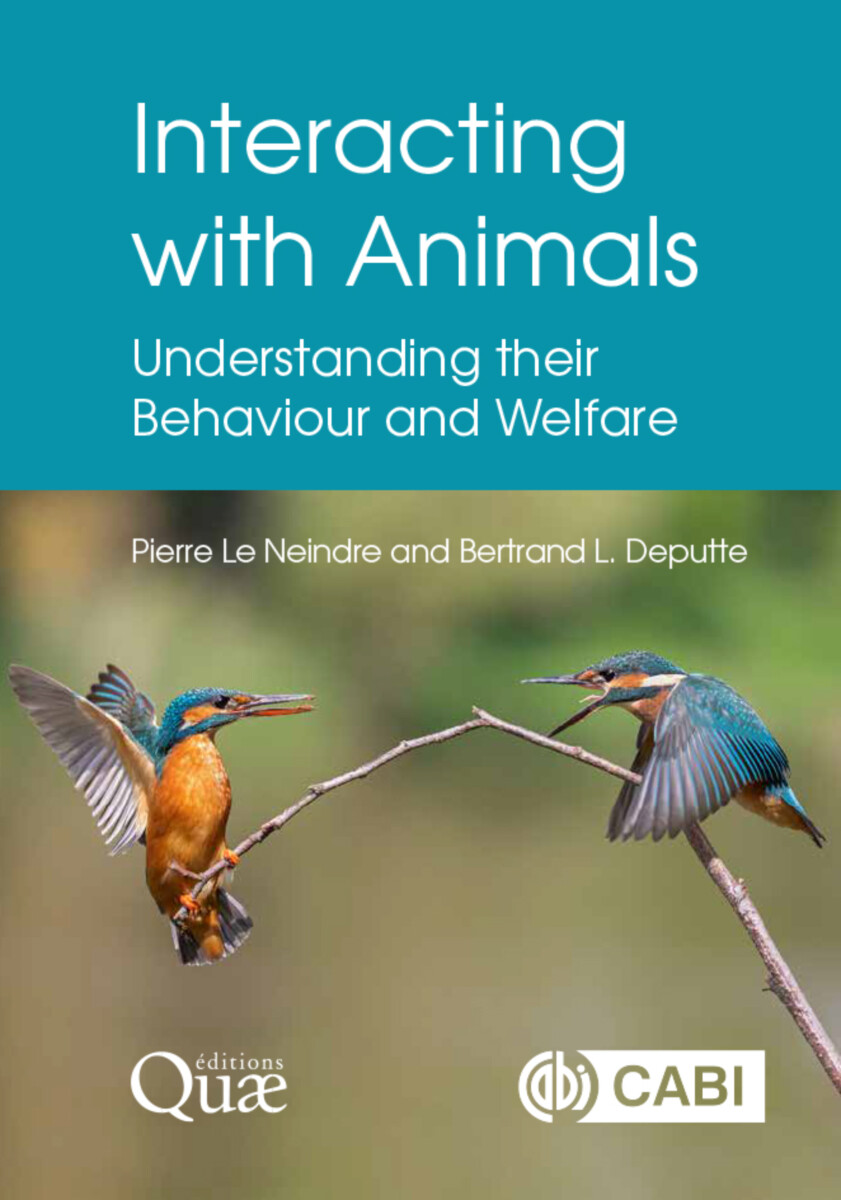Interacting with Animals
Understanding their Behaviour and Welfare
- Publisher
CABI - Published
17th January 2023 - ISBN 9781800622395
- Language English
- Pages 120 pp.
- Size 6" x 9"
- Publisher
CABI - Published
17th January 2023 - ISBN 9781800622388
- Language English
- Pages 120 pp.
- Size 6" x 9"
Animal behavior and welfare is an increasingly complex area of study, with the diversity of the animal kingdom ensuring there is no one, easy answer. Instead, it requires us to take a holistic approach combining scientific principles with both philosophical and ethical considerations to develop all-inclusive policies and legislation that decide how society should interact with domestic, farm, and native animals.
With a focus on domestic animals, but with references to wild species to reinforce the arguments made, this book:
- considers the concept of consciousness, how it can be assessed, and how it relates to suffering and animal welfare more widely;
- emphasizes the need to better understand how animals behave both in relation to and outside of human influence, considering the diversity of behavior and sensorial capacities across species;
- includes author expertise across a wide range of animal species, from primates to domestic farm animals, and across living situations from intensive to free-ranging.
1: Emergence of Ethology as a Science of Animal Behavior
2: The senses: How the animals know what is happening to them?
3: Behaviour: How the animals respond to what they know?
4: How do we measure the behavioral and cognitive ability of animals?
5: The human factor: How do animals adapt to humans
6: Animal welfare: The responsibility of humans for animals
7: General conclusion
Pierre Le Neindre
Pierre Le Neindre is a retired scientist from INRA, France. He worked in the field on sheep and cattle in many environments ranging from veal calves in cages, beef cattle in the hills of France, and sheep in France and Australia. He also worked on experiments into the onset of maternal behavior and on the importance of endocrinology. He led a team studying ethics of animal husbandry and the biology of pain, suffering and consciousness. His team worked on basic academic studies as well as contract research for both the European and French ministries.
Bertrand Deputte
Bertrand Deputte’s main research is on the social behavior of captive primates, their visual and vocal communication, development of social behavior and social perception. Formerly he was Honorary Director of Research at the CNRS/Honorary Professor of Ethology at French National Veterinary Schools at Alfort (ENVA), where he also taught ethology and directed research on perception and social behaviors in cattle and dogs.


